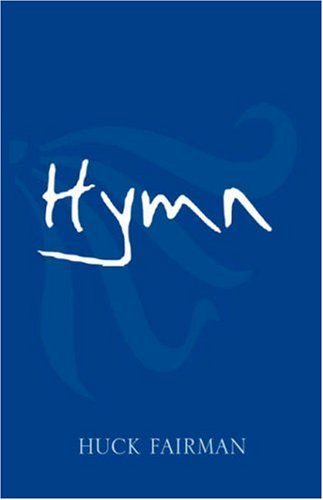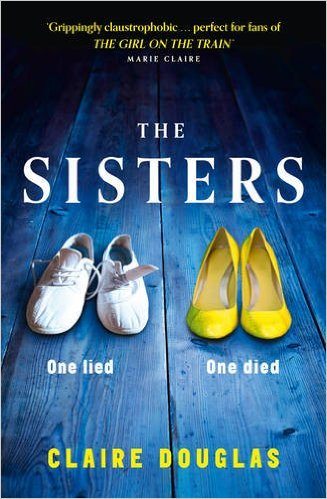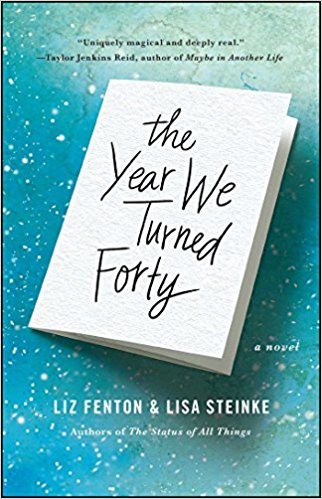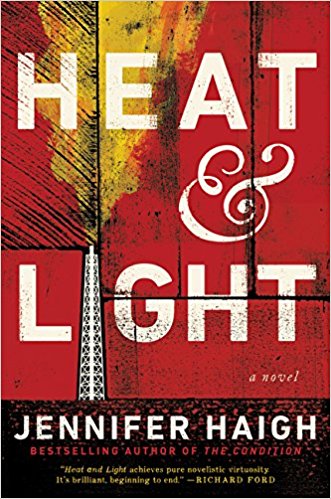Hymn
With the publication of his latest work, Noah’s Children, Huck Fairman has assured his place as one of the most thoughtful and provocative writers in the field today.
He emerged on the scene a few years ago with the publication of Hymn, the story of a journalist who is foundering personally and professionally. When she rededicates herself to her job, she is given the opportunity to profile a media-wary film director on the set of his latest work, but as their relationship evolves, secrets emerge that could jeopardize both of their futures.
Hymn, perhaps my favorite of his three books thus far, deftly moves between writing styles as it switches from Christine’s first-person diary to excerpts from her novel in progress to letters exchanged by the characters, all framed by the backdrop of the seasons over the course of a year.
Several of Fairman’s predominant themes are already prevalent in Hymn. We meet characters who have been shaken loose by circumstance — Christine by her divorce and her father’s death, David by his secret — and whom are defined by unrealized projects that may yet outstrip them. Change has confronted them both head on, and their journeys forward are compellingly crafted and well-told.
In his second effort, the Tales from the City duology, Fairman presents two shorter, but no less engrossing, examinations of sudden change on a larger scale. St. Mary’s Bar offers a week-in-the-life glimpse at a loose gathering of friends, an ersatz Algonquin Round Table, whose comfortable interactions are shattered by a friend’s story of another man’s apparent assault and mistreatment by police. Slipshod Watchman returns to the first-person style to explore a man who becomes a life-defining crossroads for two intriguing women. As his recollection of events meanders between past and present, the reader assembles the full story of a tragic attack that might have been prevented.
Both are takes of sudden, explosive violence, and the loss of the sense of personal security felt in the aftermath, as if some cozy invisible blanket had been torn away forever. Here we have the catalyst for change in each character, felt most deeply by the protagonist McKim in Slipshod Watchman after Rachel’s death and Errol after observing Clayton’s assault in St. Mary’s Bar.
Fairman’s greatest asset as a writer is abundantly clear in these paired stories: an innate ability to create characters that feel like real people who have been somehow conjured from the pages of fiction. These are genuine, fully-realized individuals summoned up and tossed headlong into the chaotic, unforgiving whirlwind of life and its sometimes-crushing responsibilities. Rational at times, they can still be swept along by their emotions. They make mistakes, they brood, they ponder and react and feel. That is a creative triumph in and of itself. These are not plots served by characters, these are characters affected by plot.
The social issues the characters in Tales of the City confront are greater than those encountered in Hymn, as we are left to ponder police brutality, civil rights, and preconceived notions of race. (But even in Hymn, a similar moment of unexpected near-violence jars the reader as roughly as it jars Christine.)
None of these themes are flaunted for timeliness or convenience; they are integral, key parts of the story, demanding attention from character and reader alike. Here, change is forced upon the characters, and much like Christine and David in Hymn, the choices that are made in its wake can be devastating or uplifting.
And nowhere is the theme of change more emblematic than in Fairman’s latest work, Noah’s Children.
Hamilton Warring is a man defined by change: on a professional level as a local newspaper reporter trying to spread the word about the environment in peril, and on a personal level as a man trying to learn from previous mistakes as a husband and father. But Ham struggles to make meaningful connections — with his increasingly estranged daughter, with the intriguing women he encounters, with a public seemingly indifferent to the looming threat of global warming. When he spearheads the creation of Earthstudies, a web-based forum for discussion and information collection, Ham takes his mission across the country, embarking on a journey that may alter his life forever, for better or for worse.
As a crusader, he is a step beyond the short-lived activism of St. Mary’s Bar‘s characters, as he has dedicated his life to a cause greater in sheer size and scope than any of Fairman’s previous characters. While Christine, Errol, and McKim are shaken out of their bubbles of comfort and complacency by events beyond their control, Ham strives to shake the rest of the world out of their complacency in order to save the world.
But he is no superhero. He is as believable as any of the other Fairman creations I’ve encountered. He is deeply flawed, obsessive, myopic, sometimes even somewhat misanthropic. In his flaws and foibles, his virtues and fears, he is real. His happiness, his interactions with others, his very ability to live is affected by what he learns, his conduct, and his decisions. He encompasses all of the qualities of a Fairman character.
I can easily imagine encountering any of these people on the street, that’s how convincingly they’re conceived. They are subject to real tragedies, great and small, in worlds far grayer than those of heroes and villains, and their lives are composed of victories and defeats.
Each of these stories is a worthwhile journey, both for the character and the reader. I look forward to seeing where Fairman takes us next.
| Author | |
|---|---|
| Star Count | /5 |
| Format | Hard |
| Page Count | |
| Publisher | Xlibris |
| Publish Date | 18-Nov-2006 |
| ISBN | 9781413423532 |
| Bookshop.org | Buy this Book |
| Issue | December 2010 |
| Category | Popular Fiction |
| Share |








Reviews
There are no reviews yet.